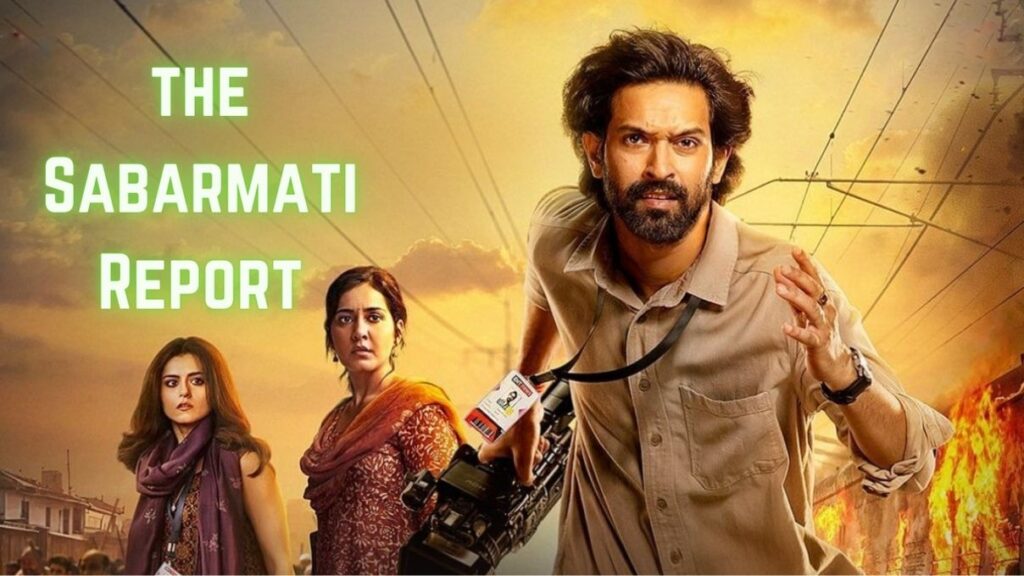Vikrant Massey, celebrated for his powerful and relatable performances, has once again landed in the public eye. This time, the buzz surrounds his upcoming film The Sabarmati Report, set to release the burning truth will be out on 15th November only in cinemas, and his alleged change in political stance. While the film delves into the painful truths of a polarizing historical event, Massey’s evolving views have ignited debates about his personal beliefs and professional motives.
The Sabarmati Report Controversy Amidst Vikrant Massey
Vikrant Massey, an actor revered for his nuanced performances, finds himself in the midst of controversy yet again, this time surrounding his upcoming film Sabarmati Report. Known for taking on socially relevant and challenging projects, Massey has become a lightning rod for discussions about politics, personal growth, and the intersection of art with activism. His statements regarding his changing perspectives and the allegations of his supposed alignment with the BJP have sparked widespread debate. As The Sabarmati Report prepares for its release, let’s dive into the complexities surrounding Massey’s journey, his evolving ideology, and the film’s role in reigniting contentious conversations.
The Controversy Surrounding Vikrant Massey’s Statements
Vikrant Massey’s recent remarks about his changed perspective have drawn significant attention. Critics and netizens claim that his softened tone toward the BJP appears calculated, particularly as it coincides with the promotion of The Sabarmati Report, a politically sensitive film.

To understand the controversy, it’s important to revisit an incident from Massey’s past. During the aftermath of the Kathua rape case in 2018, the actor posted a cartoon highlighting the tragedy. While the post intended to call attention to the brutal assault, it offended certain groups who accused him of disrespecting Hindu sentiments. The backlash was swift and severe, branding Massey as anti-Hindu and, in some quarters, anti-national.
Now, years later, the public is drawing comparisons between his earlier vocal criticism and his current neutral stance. Accusations of opportunism have surfaced, with some alleging that Massey’s new tone is a strategic move to avoid controversy and ensure the smooth release of The Sabarmati Report.
Vikrant Massey’s Clarification
In response to the growing criticism, Massey addressed the issue during a podcast interview with YouTuber Shubhankar Mishra. Acknowledging the shift in his outlook, Massey emphasized that his evolution has been a result of personal experiences and not external pressures or vested interests.
“I’m not the same person I was ten years ago,” he stated. “Life changes you. You learn, unlearn, and grow based on your experiences. My belief in secularism remains intact, but I’ve realized that reacting impulsively to every issue isn’t productive. It’s more important to approach situations with a neutral and balanced perspective.”
Massey’s explanation sheds light on the personal growth he has undergone over the years. Through his travels and interactions with people from various walks of life, he has gained a deeper understanding of the complexities that underlie societal issues.
The Role of Travel and Experiences in Shaping Massey’s Thinking
Vikrant Massey credits his extensive travels across India and beyond for broadening his horizons. He has spent time in culturally rich states like Uttar Pradesh and Bihar, where he interacted with individuals from diverse backgrounds. These interactions allowed him to see the world through a more empathetic lens.
“Initially, problems seemed insurmountable to me,” he admitted during the podcast. “But once I engaged with people on the ground, I realized that the challenges they face are far more nuanced. Many issues that appear black-and-white from afar have layers of complexity that only become clear when you dive deeper.”
This exposure to varied perspectives has significantly influenced Massey’s worldview. He now approaches contentious topics with greater patience and a willingness to understand all sides before forming an opinion.
Sabarmati Report: A Film Rooted in Historical Pain
At the heart of this controversy lies The Sabarmati Report, a film that tackles one of the most painful and polarizing events in modern Indian history: the Godhra incident. The tragedy, which occurred in 2002, continues to evoke strong emotions and debates about justice, governance, and the human cost of communal violence.

The Sabarmati Report is not just another movie for Vikrant Massey; it represents a bold attempt to address sensitive issues through the medium of art. The film The Sabarmati Report narrative seeks to explore the human suffering behind the headlines, delving into the lives of those affected by the tragedy. Massey’s role in the movie is deeply personal, as he portrays a character striving to uncover the truth amidst a sea of political and social turmoil.
While the film’s intent is to spark meaningful dialogue, its controversial subject matter has drawn sharp criticism and even threats. Massey has faced backlash from both political and social groups, with some accusing him of exploiting the tragedy for personal gain.
Online Trolls and the Challenge of Public Scrutiny
Vikrant Massey’s career has been marked by a fair share of trolling and public scrutiny. Recently, his comment about India’s independence being “so-called” in 1947 reignited controversy. Critics lambasted the actor for allegedly undermining the sacrifices made by freedom fighters, calling his statement disrespectful and out of touch.
Addressing these allegations, Massey clarified that his words had been taken out of context. “People often misinterpret what I say,” he explained. “My intention has always been to provoke thought and encourage dialogue, not to disrespect anyone.”
Despite his explanations, Massey continues to face online abuse. However, he remains undeterred, choosing to focus on his craft and the stories he wishes to tell.
Balancing Art and Activism
Vikrant Massey journey highlights the delicate balance artists must maintain between their personal beliefs and their professional endeavors. In an era where social media amplifies every word and action, actors like Massey find themselves walking a tightrope.
For Massey, art and activism are intertwined. Through his roles, he seeks to shine a light on societal issues that often go unnoticed. Yet, this commitment to storytelling comes with its challenges, as it exposes him to criticism from all sides.
What Vikrant Massey Teaches Us About Growth
At its core, Vikrant Massey’s story is one of growth. His evolving perspective underscores the importance of learning and adapting as one encounters new experiences. In a polarized world, where opinions are often reduced to binaries, Massey’s journey serves as a reminder that personal beliefs are not static.
“I still believe in secularism,” Massey reiterated during the podcast. “But I’ve realized that being secular doesn’t mean being reactionary. It means listening, understanding, and finding common ground. That’s what I strive for now.”
The Way Forward: Lessons for Artists and Audiences
As The Sabarmati Report nears its release, the controversies surrounding Massey highlight the broader challenges faced by artists in politically charged environments. For Massey, the focus remains on telling stories that matter, even if they come at a personal cost.
For audiences, his journey offers an opportunity to reflect on the importance of empathy and open-mindedness. Just as Massey has learned to approach issues with greater nuance, viewers too can benefit from seeking deeper understanding and avoiding snap judgments.
A Story of Courage and Conviction
Vikrant Massey’s life and career reflect the courage it takes to evolve in the public eye. While his changing perspectives have drawn criticism, they also demonstrate his willingness to grow and learn from his experiences. Through The Sabarmati Report, Vikrant Massey hopes to spark meaningful conversations about India’s past, present, and future.
As he navigates the challenges of public scrutiny, Vikrant Massey remains committed to his ideals, proving that personal growth and artistic integrity can coexist. In a world that often demands conformity, his journey serves as a powerful reminder of the value of staying true to oneself while embracing change.






